Buch Wien 25
Literature from Southeast Europe
TRADUKI at the Vienna Book Fair 2025
Literature from Southeast Europe
TRADUKI at the Vienna Book Fair 2025
This program featuring authors and translators from Southeast Europe is an invitation to explore the rich literary landscape of this diverse region. Participating writers come from Albania, Liechtenstein, Austria, Romania, Serbia, and Slovenia.
We look forward to having you join us on this journey. Visit us at our booth A26 in Hall D.
Programme»Der Mann hinter dem Nebel« (The Man Behind the Mist) brings together 23 loosely connected stories. Set mainly in Berlin, they follow a stumbling protagonist through fleeting moments of joy and painful loss, often at a crossroads where a new perspective suddenly opens up. A book about the grotesque and the abyss of life: dreamlike and shimmering, melancholic yet compelling, with a narrative pull that will also appeal to fans of Kafka.
Liechtenstein-born Anna Ospelt first gained recognition as a poet; Albanian author Anna Kove is an award-winning writer and translator of German-language literature. In conversation with author and translator Andrea Grill, they explore closeness and distance, dialogue and exchange, and the challenge of carrying poetry from one language into another. A bilingual reading invites the audience to immerse themselves in two very different worlds of language.
In cooperation with Kulturstiftung Liechtenstein.
Based on a true story. On 6 July 1965, a nine-year-old schoolboy was abducted from the playground of Ebenholz Primary School in Vaduz (Liechtenstein). From this real incident, a new fictional narrative unfolds, featuring police corporal Peter Kaiser and young Friedrich “Fritz” Krause. Fritz notices strange goings-on in Vaduz’s villa district. Fearing he may have been spotted by the kidnappers, he flees with his seven-year-old neighbour Anton. Suddenly, Corporal Kaiser is faced with three missing pupils from the same school.
In cooperation with Kulturstiftung Liechtenstein.
Moldovan novelist Iulian Ciocan is one of the most important Romanian-language voices from the Republic of Moldova. For the first time in Austria, he presents his novel Before the Russians Come. In discussion with historian and Eastern Europe specialist Oliver Jens Schmitt, moderated by Günter Kaindlstorfer, Ciocan addresses Moldova’s political climate, its cultural landscape between Romania and Ukraine, and the contested region of Transnistria.
Written as Russia annexed Crimea and launched war in eastern Ukraine, Ciocan’s novel (2015) is an almost prophetic satire on a Russian invasion from separatist Transnistria. It intertwines two stories: a young academic trying to publish his novel about a Russian invasion, and the uncanny overlap between fiction and political reality.
In cooperation with the Rumanian Cultural Institute Vienna and the Rumanian Ministery of Culture.
Brigitte Döbert, a multiple award-winning translator, has long combined her practical work with theoretical reflections on translation. Together with participants of the Vice-Versa translation workshop at the Forum Literaturübersetzen Österreich, she opens up the often-invisible process of literary translation. Using contemporary texts from the successor states of Yugoslavia, the session offers insights into this fascinating craft.
In cooperation with Forum Literaturübersetzen Österreich
In ten essays, Lindita Arapi recalls her childhood in Albania under Enver Hoxha’s dictatorship, political persecution, and the painful, difficult path toward democracy. She writes about her arrival in Germany, life in another language, and the challenge of leaving such experiences behind without severing ties to her homeland.
On this evening, two writers meet: one from Belgrade, one from Vienna with Serbian roots. Together they open a window on the Serbian capital, past and present.
Milica Vučkovic tells the story of Eva, a young single mother who dreams of a future with a journalist but remains trapped in patriarchal patterns—a voice from Serbia that deserves to be heard.
Marko Dinić takes us to Belgrade in 1942. On the day the city was declared “free of Jews,” Isak Ras searches for answers to his mother’s disappearance 21 years earlier. Dinić’s novel tells not only a chapter of Serbian and European history but also traces, with deep knowledge, the history of Belgrade’s Jewish community.
In “Der tödliche Ausgang von Sportverletzungen” (The Fatal Consequences of Sports Injuries) the main character Eva becomes a mother while still very young and raises her son alone. She falls for a journalist and writer, believing in a shared future—until she realises she has been caught in the net of a manipulator and sociopath. A move to Germany worsens her plight. A powerful novel about manipulation and patriarchal structures, exposing the dangerous myth that love must hurt.
In cooperation with Zsolnay Publishing House
Dinić’s new novel “The book of faces” leads us into Belgrade of 1942, following the trail of Isak Ras. On the day Belgrade is declared “Jew-free,” Isak begins searching for the truth about his mother’s disappearance two decades earlier. Told in eight chapters and multiple voices, the book combines gripping storytelling with a finely observed account of Jewish history in Serbia and Europe.
When little Dominik comes home from kindergarten in tears, his father conjures up two magical animal friends—Schnuffel and Hops—who come alive through light and shadow. They help him shrink his fears and worries. A heartwarming story about comfort, conversations, and the small gestures that can make us feel better.
In cooperation with SKICA Wien and the Slovenian Book Agency JAK.
The two Slovenian writers and artists live and work in Vienna, publishing in both Slovenian and German. They read from their own texts and discuss what it means to write in two literary languages: how does bilingualism shape the creative process? Do the two languages coexist independently, or is writing in one always a kind of translation from the other?
Beyond writing, Ana Marwan also works in photography, Tamara Štajner in music—another lens through which to explore how artistic practice influences literature.
In cooperation with SKICA Wien and the Slovenian Book Agency JAK.


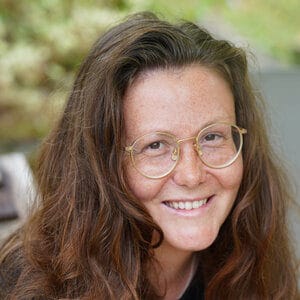
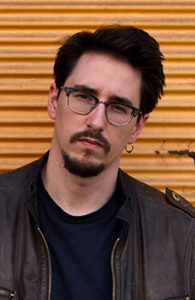
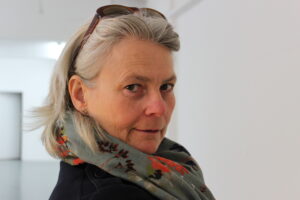
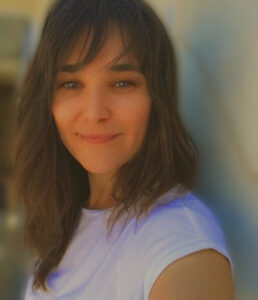
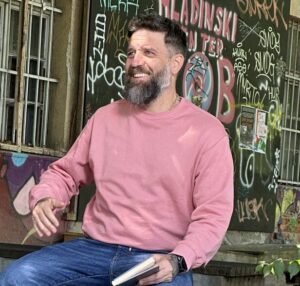
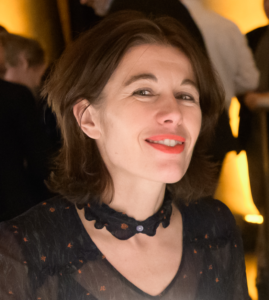


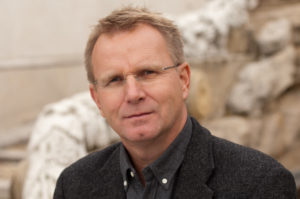

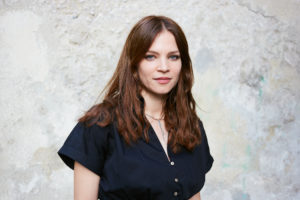
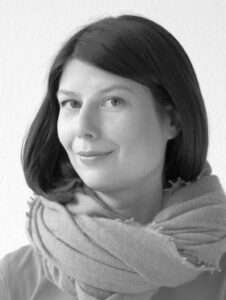
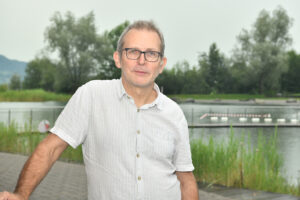
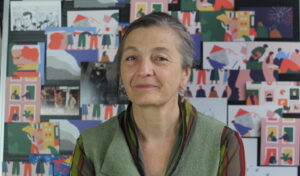


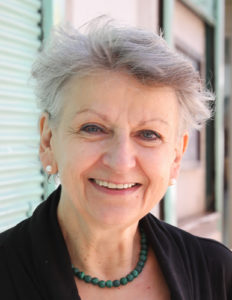

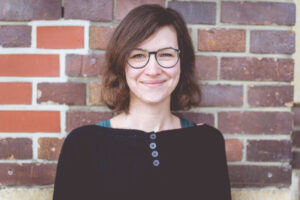
Information about our TRADUKI programme at past editions of the Buch Wien can be viewed here: